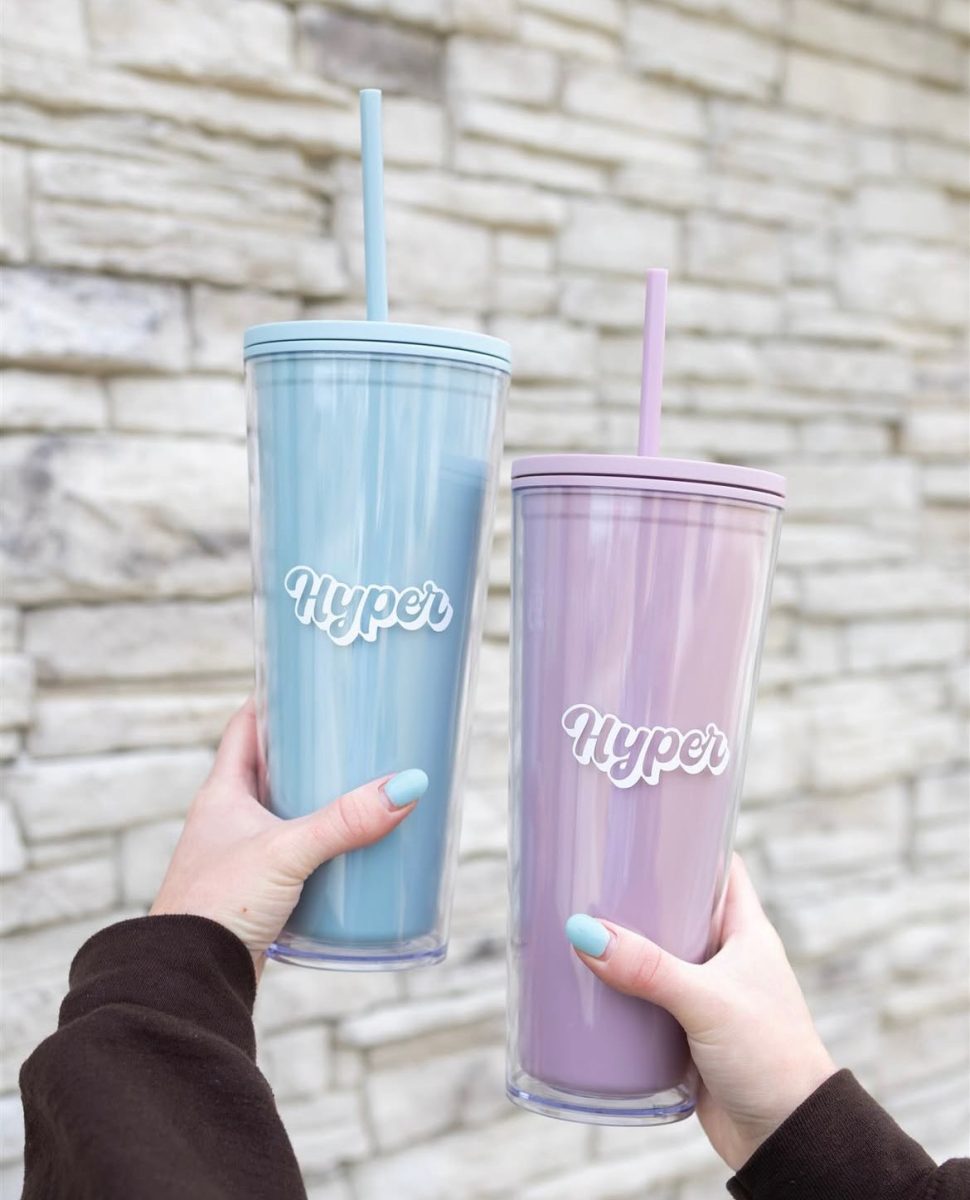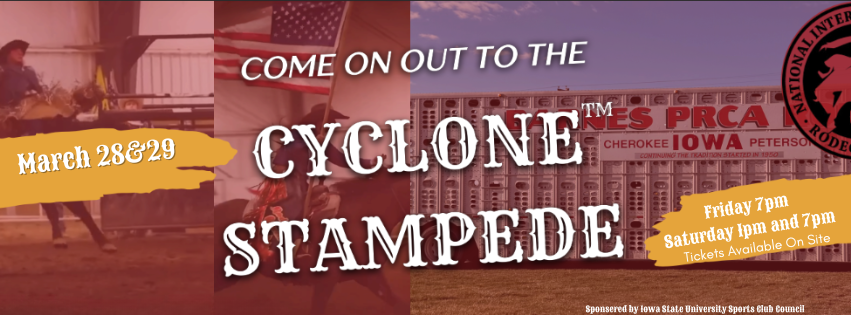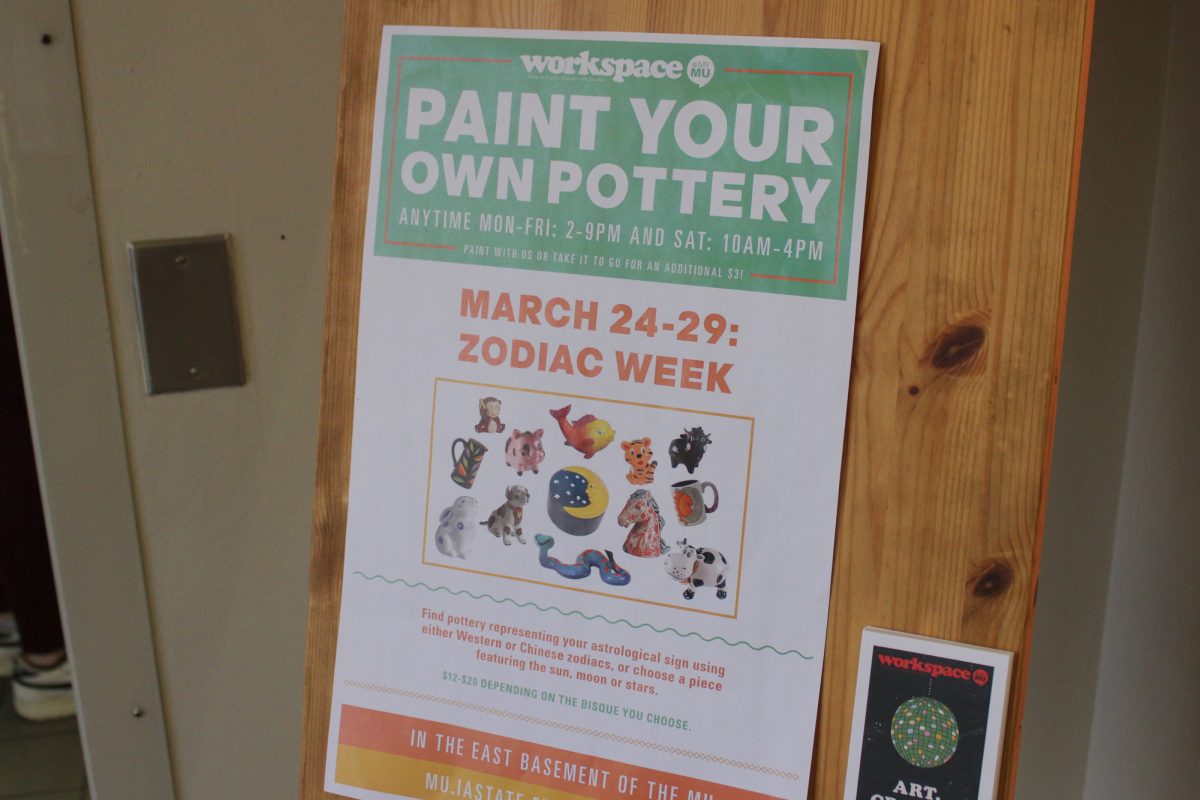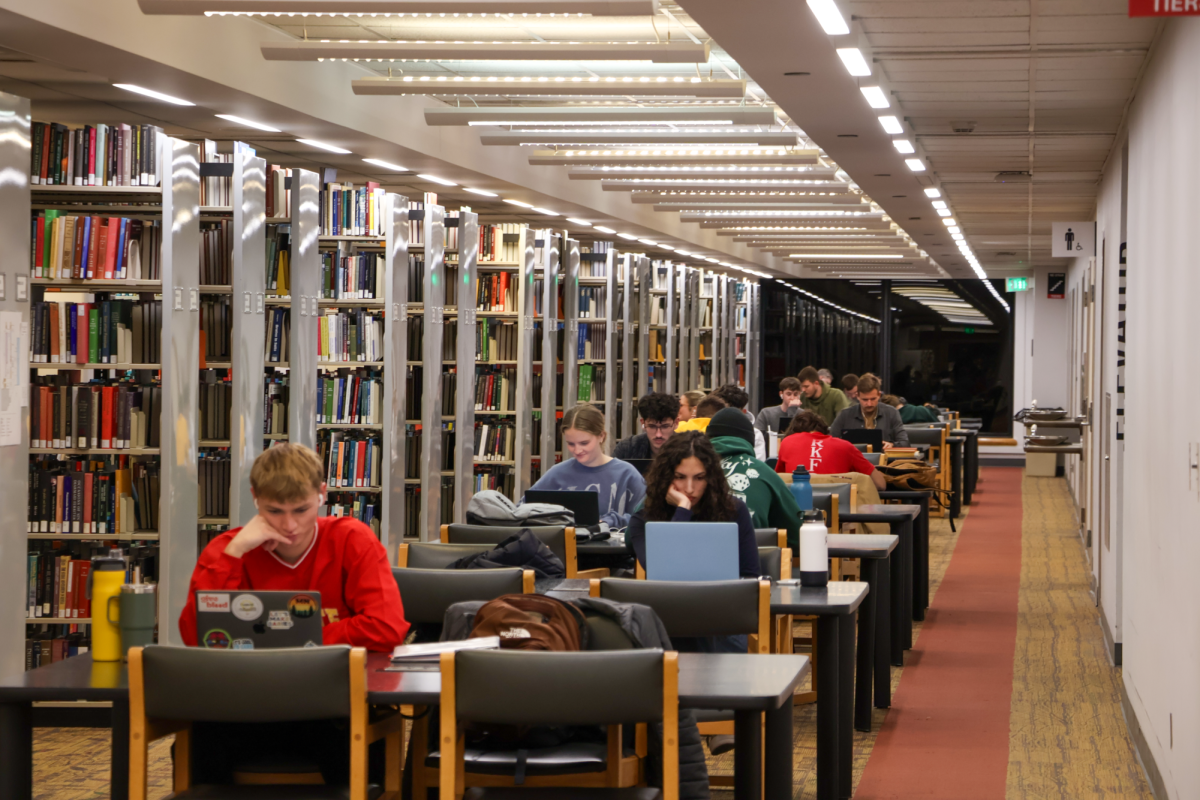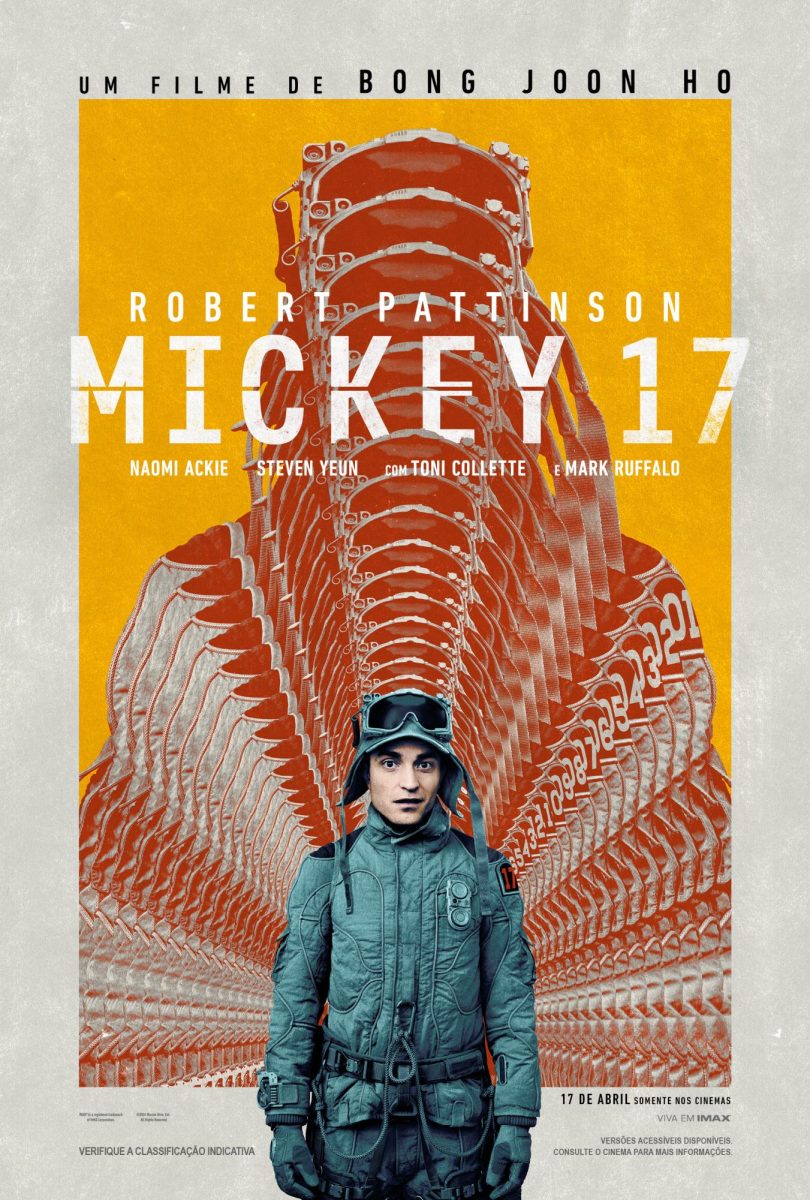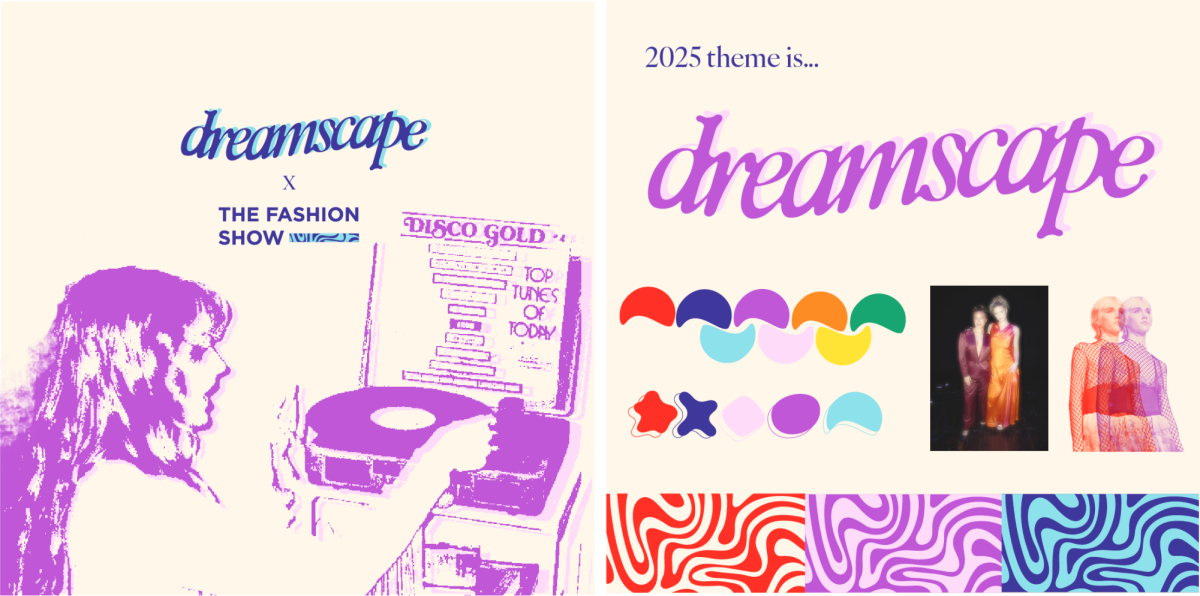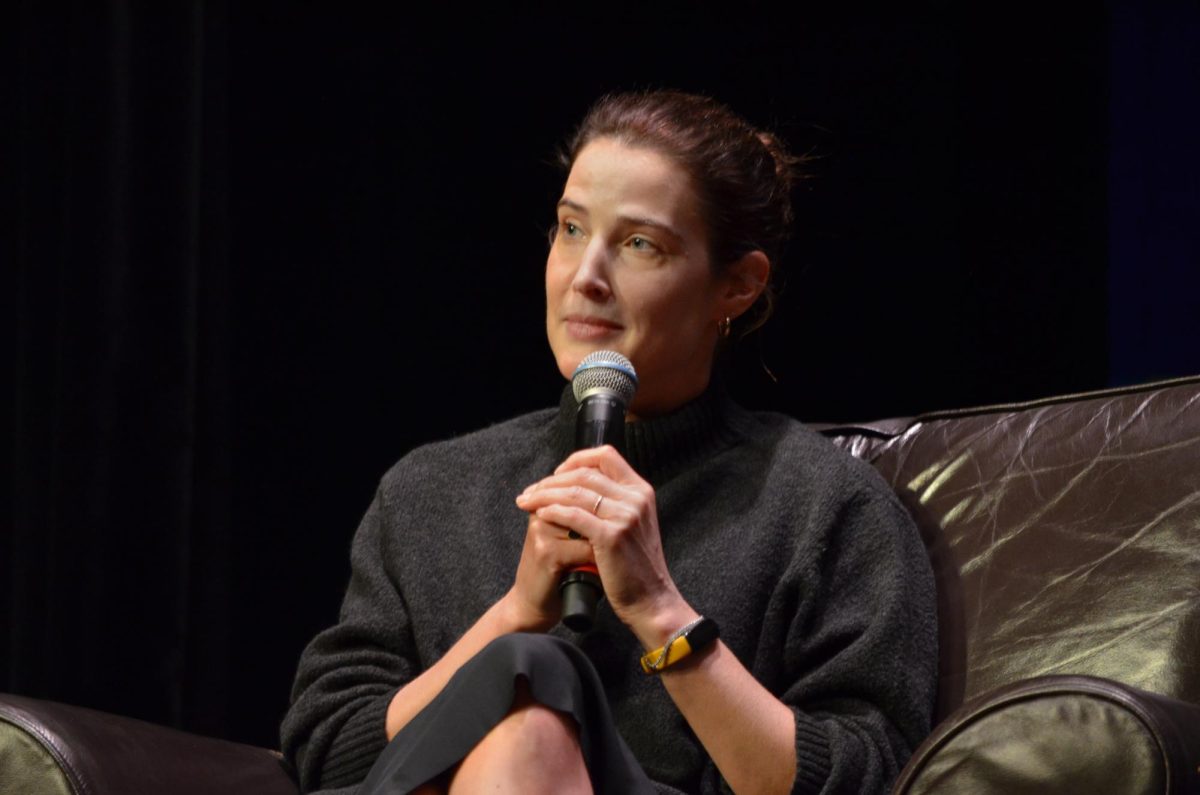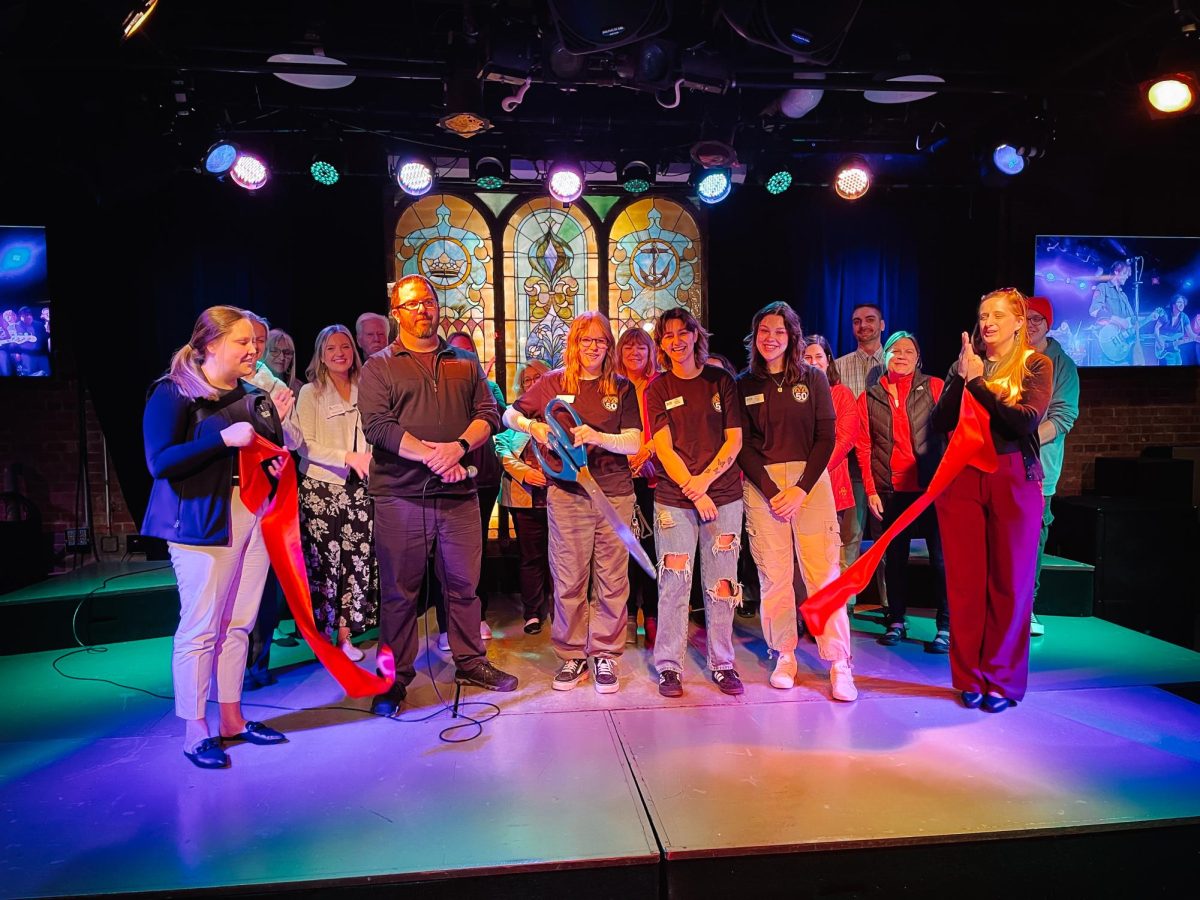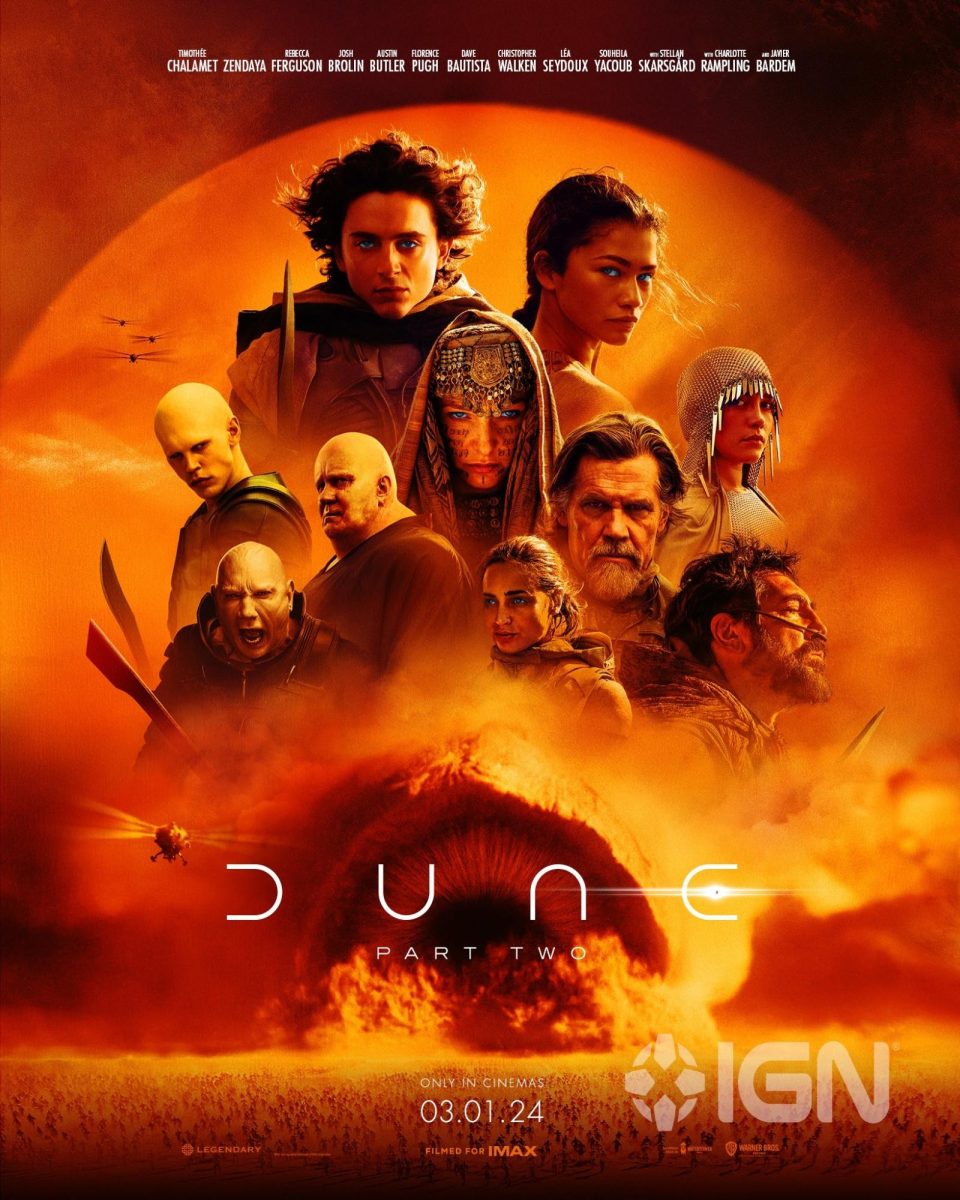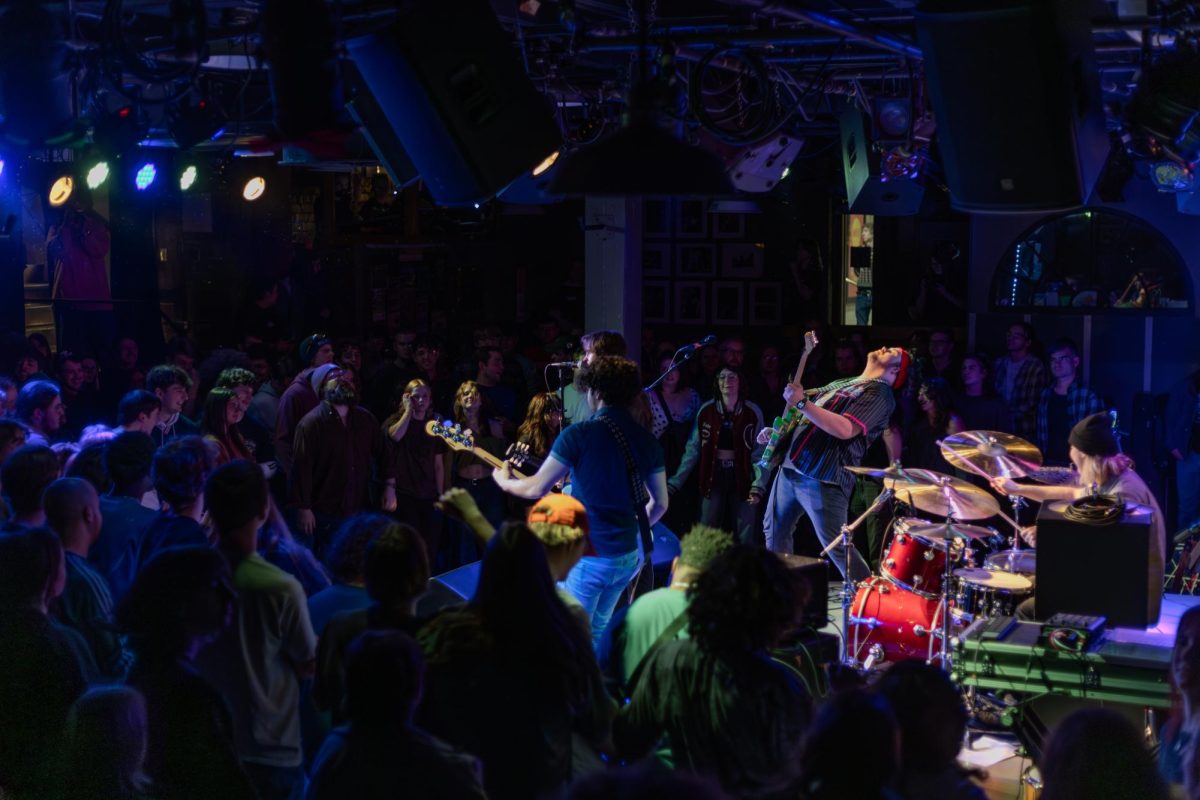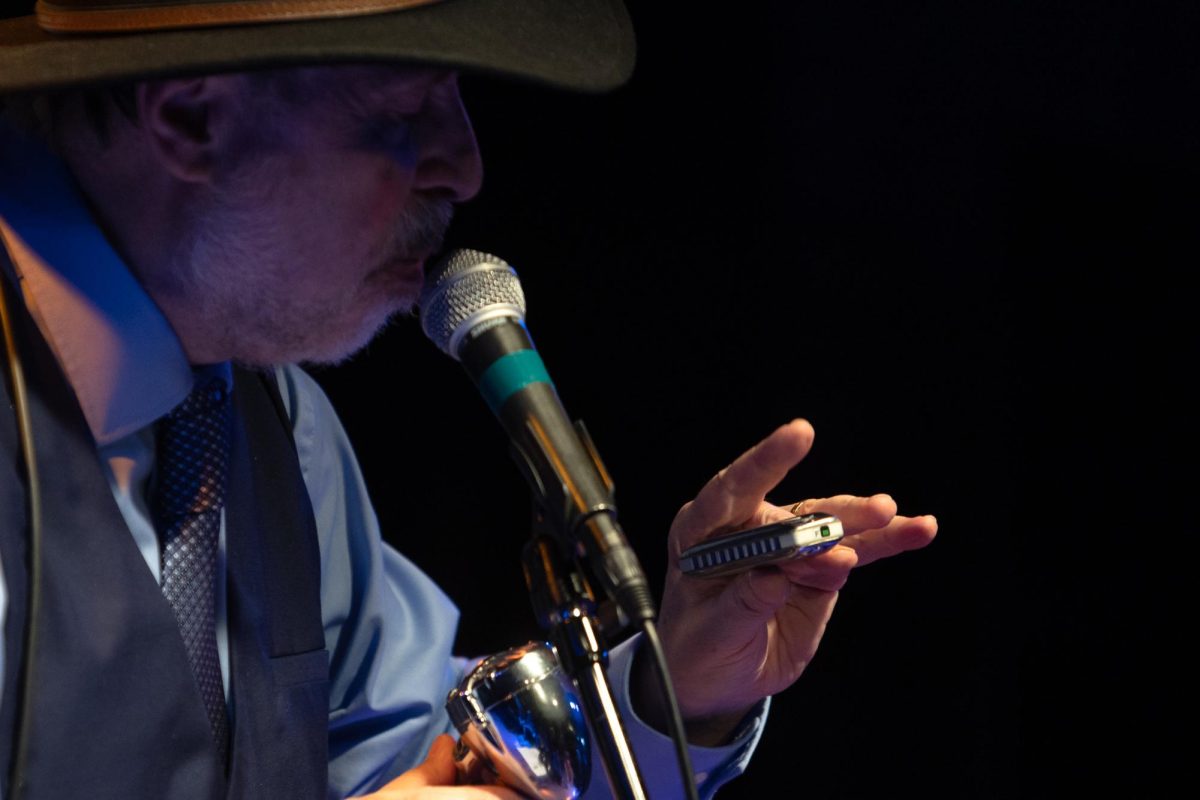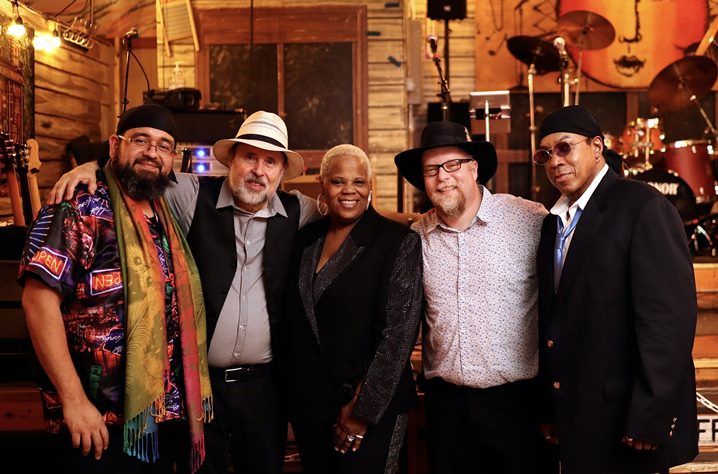All hands were on deck at the student radio station Saturday during KURE’s annual six-hour radio quiz show, QuickyKwiz.
In a makeshift call center, around 20 KURE members huddled around a large conference table and answered incoming calls; on the other end were teams participating in KURE’s largest event of the fall semester.
Ethan Baccam, a senior in psychology and a QuickyKwiz director, explained the basics of the event.
“It is a six-hour radio trivia event where teams… sign up, and they participate in this trivia event that happens on radio waves,” Baccam said. “We give the questions on air, and then for the next six minutes, the teams have an opportunity to call in and answer the question. And then they just keep doing that for six hours.”
Before this event started, a lot of preparation had to be done and one of the biggest challenges for KURE was writing questions beforehand. 60 questions had to be written for the six-hour radio show.
When writing questions, KURE ran into the problem of online cheating. They needed to come up with creative solutions in order to curb looking up answers.
“We’ll write the question, slam it right into Google and then we’ll see what answers come up,” Baccam said. “If it’s like the first or second answer, we’re like, ‘All right, we need to put more detail into this so you can’t just Google it.’”
Once QuickyKwiz went on air, every KURE member had a job to do.
“You need the broadcast team to be on the dot every six minutes reading a question. You need someone playing music. You need someone in headquarters making sure that emails [and calls] are being supported,” Baccam said. “Overall, it’s this really tight-knit system that we put together.”
During the six hours QuickyKwiz was on air, KURE’s broadcast rooms were fully occupied. A question reader, two producers and a DJ took up all three booths. On a normal KURE broadcast, only one or two of these rooms is being used.
“Generally, everything is not this complicated,” said Kamil Qureshi, a senior in cyber security engineering. “Everything is usually run from that room [the broadcast room]… [and] it’s done by the automation system. Right now, everything is basically manual and much more intensive.”
The question writing, reading and scorekeeping took the most effort, but that was not the only way teams could earn points. A scavenger hunt, a gingerbread contest and a LEGO building competition, among other games, were all possible ways to earn points.
QuickyKwiz ended at 6 p.m., and a winner was crowned. If students missed out and want to participate in a similar quiz, they are in luck. Kaleidoquiz is a 26-hour radio quiz that KURE will hold next semester.



